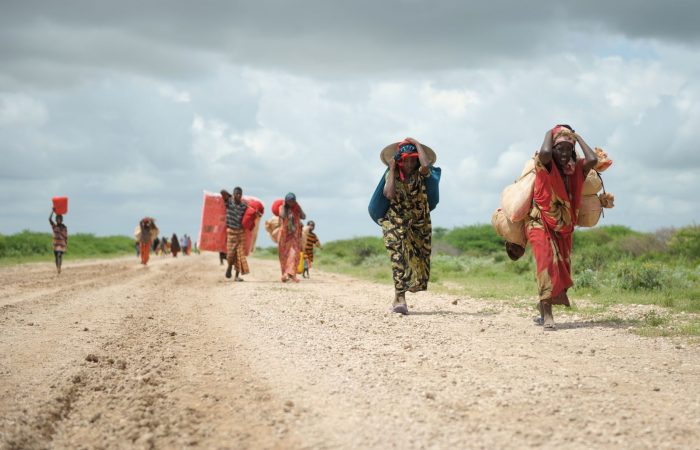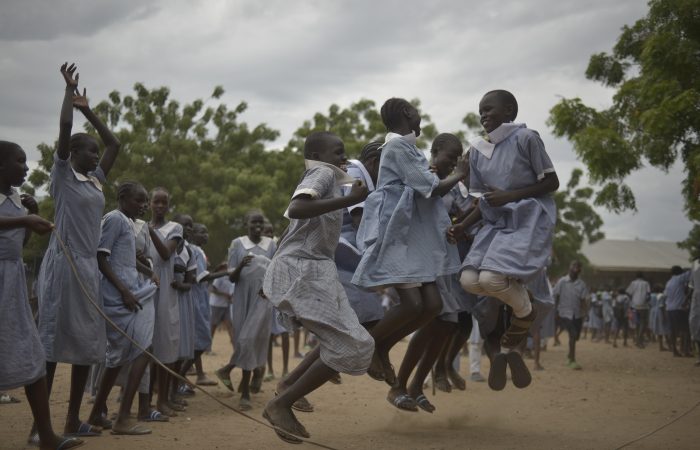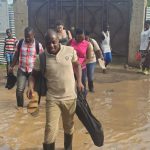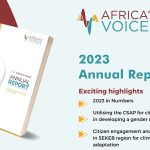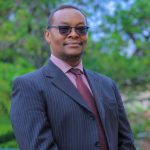After two years of addressing different barriers and drivers to girls’ education in Kakuma and Dadaab refugee camps, through the Kenya Equity in Education (KEEP) II programme, implemented by the World University Service of Canada (WUSC), once again, 2021 will see Africa’s Voices Foundation carry out community engagement and communication intervention in Kalobeyei settlement.
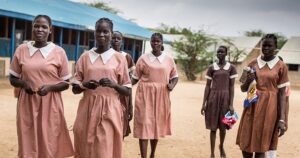
The project aims at building teenage girls’ (12-17 years) knowledge of the risks they are exposed to, and build individual and collective efficacy in protecting and standing up for themselves. In addition, the project will provide life skills through positive modelling and mentorship approaches to girls and guide them towards building the requisite life skills.
AVF’s multi-channel approach, incorporating the interactive radio and mentorship activities, will cover key topical issues on: sexual and reproductive health, early and or forced marriages, teenage pregnancies, sexual and gender based violence, psychological and emotional abuse, girl’s education rights, economic empowerment activities for girls etc. This will enable the young girls gain confidence and not succumb to pressure that would lead them to drop out from school while enabling them to stay positively engaged in life.
Access to education is a key human right. According to the Universal Declaration of Human Rights, education is essential to the “full development of the human personality and acquisition of knowledge.” Arguably, education makes one independent and resilient. However, for thousands of refugee girls in Kenya, education remains an ambition, and
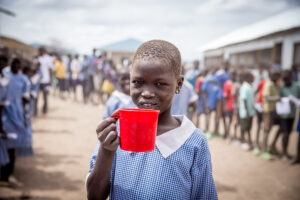
There are several barriers that specifically and uniquely limit academic progress and achievement of girls in both refugee camps and neighbouring host communities. Some of these barriers include, but are not limited to, cultural and social norms that compel the young girls to stay at home, lack of a conducive learning environment, and structures and materials to ensure that refugee girls are successful in school.
Africa’s Voices Foundation (AVF) will partner with community radio stations in Kalobeyei settlement to address the challenges mentioned above by producing and broadcasting interactive informational radio programmes. The content aired on the shows will address existing barriers and drivers to girls’ education while creating an inclusive space to carefully challenge and transform the existing norms, beliefs and attitudes. Pre-recorded radio mini-dramas will also come in handy in modeling positive norms and behaviours to promote girls’ education in the settlement.
Target communities and young girls will be encouraged to interact with the broadcasts via way of free SMS i.e. by sharing their opinions, views and questions which the guests in studio will address during the interactive show. Radio guests will be experts on topical issues identified from the community or development partner organizations working in the area.
For purposes of reaching girls and boys within the community , 14 listening groups (LGs) will be carried out on a weekly basis across the season to allow mentorship to take place and tracking of change in the course of radio broadcasts. The mentorship will be led by social workers with a good understanding of child protection guidelines and expertise to positively engage and support the young girls.
